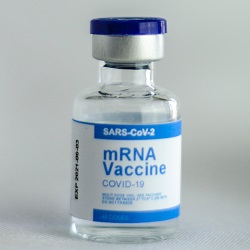
Vaccine: BMA complaints
A solicitor accused of baselessly threatening legal proceedings over the Covid vaccine is to face the Solicitors Disciplinary Tribunal (SDT).
Philip Hyland, an employment lawyer and founder of Lincolnshire firm PJH Law, is the second solicitor to be prosecuted for anti-vaccine activity after Lois Bayliss, whose case has also yet to be heard.
The two worked together during the pandemic in trying to stop the vaccine roll-out.
A notice published by the Solicitors Regulation Authority (SRA) yesterday confirmed that the tribunal has certified that Mr Hyland has a case to answer around two instances of correspondence.
The allegations are subject to a hearing before the tribunal and are as yet unproven.
He is accused of sending letters in December 2021 to a health centre which “improperly threatened legal proceedings” by seeking a form exempting ‘Client A’ from a Covid vaccine “to which Mr Hyland knew or believed Client A was not entitled”.
“In default of that request, it threatened litigation where there was no proper legal basis for the claim,” the notice went on.
The correspondence “improperly aimed to intimidate” a lay party in that by being “excessively legalistic” as well as “abusive, intimidating and aggressive in tone and language”.
The SRA said: “The correspondence sought to invoke the framework of a legal claim, and Mr Hyland’s status and a role of a solicitor, to lend unjustified weight to Client A’s meritless request.”
Second, he wrote to the chair of the Medicines and Healthcare products Regulatory Agency the same month and again improperly threatened legal proceedings.
The SRA alleges that there was “no proper factual or legal basis for the claim” and that the letter made allegations of bad faith on the part of public officials without proper foundation.
Further, it sought forms of relief “which were unrelated to, and disproportionate to, the grievances of his clients” and was actually “for the ulterior purpose of promoting a campaign against the government’s public health measures”.
Mr Hyland, who last month failed in a bid to stay the proceedings, told Legal Futures: “The allegations are not founded in fact or in law and the SRA can have no reasonable belief in the truth of them. They are being robustly resisted.”
In 2022, the British Medical Association claimed that “some solicitors” were writing letters of this nature and urged doctors receiving them to contact their medical defence organisation and share a copy with the association’s medico-legal committee so that it could “pursue further via the SRA”.
It said the committee had contacted the SRA and been assured that solicitors should not be “writing in offensive, threatening or intimidatory ways”. The SRA said it also did not expect solicitors “to pursue matters which they know have no legal merit”.













Leave a Comment